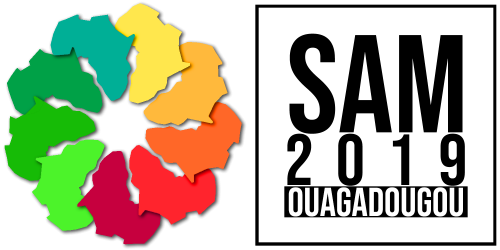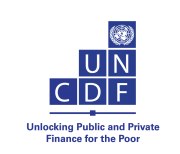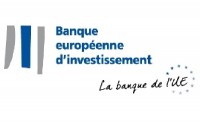- Sponsors of the SAM
- Sponsors of the Investor's Fair
- Sponsors of the Innovators' Village
Would you like to sponsor the SAM? Contact our team:
e.dolci@ada-microfinance.lu
16 sponsors trust us for the next edition of the SAM 2019! Register on the attached form to see our rate card and contact us.
Our Gold sponsors 2019
The UN Capital Development Fund (UNCDF) makes public and private finance work for the poor in the world’s 47 least developed countries. With its capital mandate and instruments, UNCDF offers “last mile” finance models that unlock public and private resources, especially at the domestic level, to reduce poverty and support local economic development. UNCDF’s financing models work through two channels: financial inclusion that expands the opportunities for individuals, households, and small businesses to participate in the local economy, providing them with the tools they need to climb out of poverty and manage their financial lives; and by showing how localized investments—through fiscal decentralization, innovative municipal finance, and structured project finance—can drive public and private funding that underpins local economic expansion and sustainable development. By strengthening how finance works for poor people at the household, small enterprise, and local infrastructure levels, UNCDF contributes to SDG 1 on eradicating poverty and SDG 17 on the means of implementation. By identifying those market segments where innovative financing models can have transformational impact in helping to reach the last mile and address exclusion and inequalities of access, UNCDF contributes to a number of different SDGs.
For more information: www.uncdf.org/
Our Silver sponsors 2019
The European Investment Bank (EIB) is the bank of the European Union, and invests in projects in more than 130 other countries around the world. The bank helps the EU meet its objectives globally including to deliver the Sustainable Development Goals, and aims for the highest developmental impact: getting other investors on board for projects and initiatives that bring support to microenterprises and start-ups as well as larger companies and key infrastructure.
The EIB has been active in Africa since 1963, and in the past 15 years has invested EUR 500m in over 50 microfinance institutions on the continent, supporting thousands of small businesses and sustaining hundreds of thousands of jobs.
For more information: www.bei.org/microfinance
HPS is a leading payment software company providing electronic payment solutions for financial institutions, processors and national switches all around the world.
Through our suite of solutions, PowerCARD, used by more than 350 issuers, acquirers and national switches, PowerCARD processes any card type (credit, debit, prepaid, loyalty, corporate and fuel) via any channel (ATM, POS, internet and mobile) for any kind of merchant.
HPS operates in over 85 countries in 5 continents and counts several Fortune 500 and Forbes World's Biggest Companies as its customers
For more information: www.hps-worldwide.com

SIDI (International Solidarity for Development and Investment) was founded in 1983. Its main objective is to promote lasting economic initiatives through local suitable financial services, and therefore to create a social economy that supports sustainable and autonomous development.
SIDI’s partners come from a diversity of backgrounds, and thus are diverse in their methods and structure; these partners include local associations, financial NGOs, businesses, microfinance institutions, solidarity mutual funds, savings and credit cooperatives and inclusive banks. They all respond to the funding needs of small entrepreneurs, artisans, shopkeepers, farmers, and project managers in developing countries that are excluded from traditional banking circles as a result of their lack of guarantees.
SIDI specifically supports the MAIN network which included 80 African microfinance institutions spread over 25 countries. SIDI also manages the FEFISOL fund in Africa.
For more information: http://www.sidi.fr/?lang=en

The Coris Group first entered the banking sector in Burkina Faso in 2008 with a pan-African vision: actively participate in the socioeconomic development of Africa.
Its main strategic lever for development is based on a unique INDUSTRIAL GROUP model which fits into market specificities and offers quality and innovative products and services.
The Group is led by Coris Holding, the parent company which provides technical assistance to subsidiaries in order to further develop leading institutions in their respective markets.
The key business lines are:
- Banking Services
- Financial brokerage and management
- Insurance Services
- Cards and electronic payment
More information: http://www.coris-bank.com/
Our Bronze sponsors 2019
The Grameen Crédit Agricole Foundation was created in 2008 by Crédit Agricole S.A and the Grameen Trust. Its mission is to contribute to the fight against poverty in so-called "emerging" countries by promoting the financial inclusion of the most deprived and their access to essential goods. Furthermore, as a Social Business company, its vision is to promote inclusive and responsible finance through the application of a rigorous approach, a standardised work grounded on international references and the ethical commitment of its staff. Through its activities, the Foundation shows its willingness to open up to the world, constantly evolve and build partnerships in line with its mission.
For more information: gca-foundation.org/

BNP Paribas is a French bank, the leading bank in the euro zone in 2018 by assets, and the 8th largest international banking group, present in 72 countries.
The bank, concerned about its social and environmental impact, has implemented a strategy (in line with the Sustainable Development Goals) structured around 4 pillars and 12 commitments, which reflect its CSR challenges, as well as its concrete achievements. This strategy, which is part of a continuous improvement process, aims to contribute to building a more sustainable world while ensuring the Group's stability and performance. All business lines, networks, subsidiaries and countries are implementing this policy while integrating their specificities.
In terms of financial inclusion and as part of its Corporate and Social Responsibility (CSR) approach, BNP Paribas has become the key partner of many microfinance institutions (MFIs). In 2018, more than 350,000 people, excluded from the traditional banking system, were able to carry out their projects and improve their standard of living thanks to the Group's financing, which amounted to nearly 300 million euros in the context of microfinance.
In Africa, BNP Paribas relies on the networks of its African subsidiaries to promote financial inclusion: UBCI in Tunisia, BMCI in Morocco, BICIS in Senegal, BICICI in Côte d'Ivoire and BNP Paribas South Africa. They support the MFIs with the best social and financial performance in each country.
For more information: group.bnpparibas/en

Microfact, a joint initiative of ADA and BRS, aims to strengthen the financial and social performances of Microfinance and Microinsurance Institutions through the use of tools and workshops.
For more informations : www.microfact.org
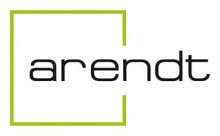
Arendt offers specialist advice, covering all legal, regulatory, taxation and advisory aspects of doing business in Luxembourg. Arendt is driven by what their clients need and is committed to supporting their success. This has led to the formation of their Services, Regulatory and Consulting and Advisory businesses as well as comprehensive training support. Arendt is composed of lawyers, regulatory consultants, business advisers, and corporate and fund service experts. Arendt bridges the gap between legal advice and its implementation.
Moreover, Arendt has structured a dedicated impact team which has gained significant experience in structuring microfinance and impact investing funds as well as other impact projects. The Arendt Impact Team offers high quality skills to selected impact finance projects initiated by specialised managers, first time fund initiators and/or private and public players for their innovative/pilot projects.
The Arendt Impact Team claims, without utopia, for a better world in helping their clients to reach the maximum impact by providing top tier legal skills at adapted financial conditions.
For more information: BUIMImpactTeam@arendt.com
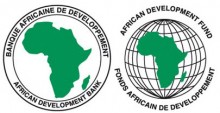
The overarching objective of the African Development Bank (AfDB) Group is to spur sustainable economic development and social progress in its regional member countries (RMCs), thus contributing to poverty reduction.
The Bank Group achieves this objective by mobilizing and allocating resources for investment in RMCs and providing policy advice and technical assistance to support development efforts.
In particular the AfDB’s Strategy for 2013–2022 reflects the aspirations of the entire African continent. It is firmly rooted in a deep understanding and experience of how far Africa has come in the last decade, and where it wishes to go to in the next. This Strategy is designed to place the Bank at the center of Africa’s transformation and to improve the quality of Africa’s growth, broadening and deepening it, mainly by ensuring that growth is shared and not isolated, for all African citizens and countries. It also aims to bring about growth that is not just environmentally sustainable, but also economically empowering. When growth is inclusive as well as “green”, it creates the jobs that the continent needs now and that it will need in the future, for the benefit of millions of young people ready to enter the job market.
Pour plus d’informations : https://www.afdb.org/en

Alterfin’s goal is to improve the livelihoods and living conditions of socially and economically disadvantaged people and communities, predominantly in rural areas in low- and middle-income countries around the world.
In order to achieve this goal, Alterfin provides financial and non-financial services to its partners by:
- raising funds, mainly from individual investors and socially responsible institutions;
- structuring and promoting ethical and sustainable investments;
- networking with like-minded organisations.
In this way, Alterfin contributes to the United Nations Sustainable Development Goals.
For more information: www.alterfin.be/en
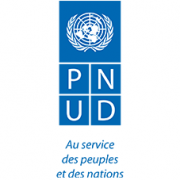
Based in 170 countries and territories, the United Nations Development Programme (UNDP) is one of the main unilateral bodies of development contributing to eradicating poverty and reducing inequalities & exclusion. We help countries to elaborate policies, to develop leadership skills and competences in terms of partnerships, to reinforce their institutional capabilities and to share solutions towards the following three development contexts: eliminating poverty in all forms, accelerating structural transformations and reinforcing the resilience concerning crisis.
In order to best work within those contexts and to target our resources and expertise towards achieving the 2030 Development Agenda, we have identified six distinct solutions that are integrated solutions and upon which the UNDP aligns its resources and expertise for a real impact: eliminating poverty, governance for societies in peace, as well as fair and inclusive, crisis prevention and reinforcing resilience, environment: solutions based on nature, clean and sustainable energy, empowerment of women and gender equality.
More information: www.undp.org

The ProFeJec (Project for Women-Youths enterprising and citizenship) is elaborated by the UNDP. It has the financial support of the Luxembourg Embassy which works in a close partnership with the Ministry of Youth and Promotion of Youth Entrepreneurship in Burkina Faso. The ProFeJec aims at reviving innovative entrepreneurship and accompanying the creation of 100 innovative and operational enterprises based on viable economic models at the end of the 2 years. In order to accomplish this, four strategic actions are considered:
- Reinforcing the structures accompanying innovative entrepreneurship in order to develop an incubation service offer and an acceleration of quality.
- Developing the networking between actors of the ecosystem to facilitate the sharing of experiences, the diffusion of good practices, the consultation and communication.
- Reconciling entrepreneurship, the personal development and the civic values, the social responsibility of enterprises …
- Connecting individuals linked to innovative projects of firms « incubated » with the potential investors, the funding structures (MFIs, banks, business Angels…)
Pour plus d’informations : www.undp.org
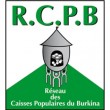
Created 40 years ago, the Réseau des Caisses Populaires du Burkina Faso (RCPB) is now the country's main financial institution. With 180 branches, it boasts the largest branch network in the country, ahead of traditional banks. One million individual and merchant customers benefit from the network's savings and basic banking services. Insurance, advice and credit are also part of the services offered by the RCPB, subject to certain guarantees.
The RCPB's mission is to contribute to the improvement of the living conditions of its members and the community, in a spirit of solidarity and individual and collective responsibility, by mobilizing local savings; developing reliable and profitable cooperative savings and credit enterprises; promoting accessible and adapted financial products and services; and democratic administration and management according to cooperative rules and principles, with due regard for the human person. By 2020, the RCPB aims to be recognized as the Decentralized Financial System with the best financial performance in Burkina Faso and in the UEMOA region, among the top 10 mutual institutions in Africa.
Pour plus d’informations : https://www.rcpb.bf/en/
 The Support Fund for Women's Remunerative Activities (FAARF) was created on September 13, 1990. He is currently under the technical supervision of the Ministry of Women, National Solidarity, Family and Humanitarian Action (MFSNFAH).
The Support Fund for Women's Remunerative Activities (FAARF) was created on September 13, 1990. He is currently under the technical supervision of the Ministry of Women, National Solidarity, Family and Humanitarian Action (MFSNFAH).
The fund aims to promote the socio-economic activity of women.
Its development objective is to provoke an economic dynamic in the female world, through the emergence of income-generating activities for the benefit of women.
MicroAID is one of the Christian Microfinance Cooperative established in Burkina Faso by evangelical communities to support development initiatives in Burkina Faso through the provision of financial and non-financial products and services. MicroAID was created in October 2006 but started its operational activities in 2008 after being officially registered in 2007.
MicroAID is specialized in savings and loans. The institution promotes small and medium enterprises in the Trade, Education, Agriculture and Livestock sectors. MicroAID has also designed specific loan products for women and for people living with a disability. In its new business plan, MicroAID has expanded its loan products to reviewable energies.
MicroAID has two branches in Ouagadougou but has the ambition to expand its activities in other cities and rural areas in Burkina Faso.
For more information: www.microaid.bf

FINACOM (Finance Communautaire) is a microfinance institution founded by the Development Office of Evangelical Churches ODE (Office de Développement des Eglises Evangéliques) of Burkina Faso in 2009, to promote an autonomous network of microfinance economically viable and having a sustainable social impact on its target groups. Its mission is to contribute to improving the living conditions of its customers and users (urban and rural) through a profitable and sustainable offer of flexible and modern financial products and services.
In a fast-changing and increasingly competitive environment, FINACOM has focused its offering on savings collection and loans disbursements, while striving to adapt its financial products and services to the current demand requirements and new consumption patterns in both urban and rural areas.
It currently has five (05) interconnected branches, 21,000 clients with outstanding deposits of 3,500,000,000 XOF and outstanding loans of 3,000,000,000 XOF.

ACEP-Burkina (Agence de Crédit pour l'Entreprise Privée) is a Microfinance Institution created in the form of a Public Limited Company with a capital of one billion one hundred and fifty million (1,150,000,000) CFA francs. It specializes in financing very small businesses (VSEs) and small and medium-sized enterprises (SMEs) located in urban and peri-urban areas.
ACEP-Burkina has launched its activities since October 2012 and currently has 07 branches in 4 of Burkina Faso's largest cities, namely Ouagadougou, Bobo Dioulasso, Koudougou and Kaya.
ACEP-Burkina's mission is to "provide financial and non-financial products and services accessible to very small businesses and SMEs in urban and peri-urban areas in order to support them in their economic and social growth".
ACEP-Burkina provides its clients with a wide range of products and services at very competitive costs and fees:
- Direct credit without prior savings
- Secure and well remunerated savings
- 24-hour bid guarantee
- Mobile Banking services.
Since 2012, more than CFAF 80 billion in direct credit has been disbursed to more than 20,000 companies.
ACEP-Burkina, to meet the expectations of its customers, continues to innovate with high value-added digital services:
- SMS Alert Service for any ATM transaction
- Reminder of credit maturities
- Remote balance consultation.
ACEP is a brand that has more than 25 years of experience in the service of socio-economic development in Africa!
Sponsor of the Gala Dinner

Oikocredit is a social impact investor and worldwide cooperative. We have over four decades of experience in promoting sustainable development through investments. We focus our investments on financial inclusion, agriculture and renewable energy.
For more information: https://www.oikocredit.coop/
Sponsors of the Investors' Fair

Crowd Credit provides debt capital on a global basis to various sectors including Microfinance Institutions, Non-Bank Financial Institutions, Renewable Energy businesses through its crowdfunding platform in Japan.
Since its inception in 2013, the company has aimed to connect the debt borrowers in the countries with limited capital access and the investors in countries with little investment opportunities, namely Japan.
As of now, Crowd Credit has raised over US$ 184million loan funds from 36,000 registered investors, and the fund size is continually growing.
For more information: https://crowdcredit.jp/global/

Triple Jump is an impact-focused investment manager that provides meaningful and responsible investment opportunities in developing countries. We believe that opportunities are not spread equally around the world, but talented people are. By providing funding and support to companies in developing countries, we aim to empower individuals to improve their quality of life.
For more information: https://triplejump.eu/
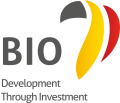
The mission of the Belgian Investment Company for Developing countries (BIO) is to support a strong private sector in developing and/or emerging countries, to enable them to gain access to growth and sustainable development within the framework of the Sustainable Development Goals.
For more information: https://www.bio-invest.be/
Sponsors of the Innovators' Village
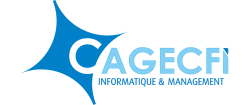
CAGECFI is a IT and management company, created in 2001, with its headquarter in Lomé (Togo) and about ten subsidiaries across Africa.
The firm specializes in the design and the implementation of IT applications for Decentralized Financial Systems (DFS) and small and medium entreprises (SMEs), the deployment of mobile platform for remote banking services, IT research analysis, etc.
To date, it has supported more than 500 microfinance institutions in their digital transition and more than fifteen public institutions in digitizing their process.
For more information: https://cagecfi.com/
Satis is not only a multi-user web application and cross-platform for the computerized management of customer complaints management process, but also a tool to aid decision making in relation to the improvement of services and customer satisfaction. It is a simple, effective and dynamic that allows:
- Collect and store customer’s complaints
- Follow all the processing steps of the complaint within the institution
- Involve all stakeholders in customer satisfaction
- Producing periodic statistics on complaints handling to support customer satisfaction and loyalty
- Identify opportunities for improving products and services
Pour plus d’informations : www.dmdsatis.com
